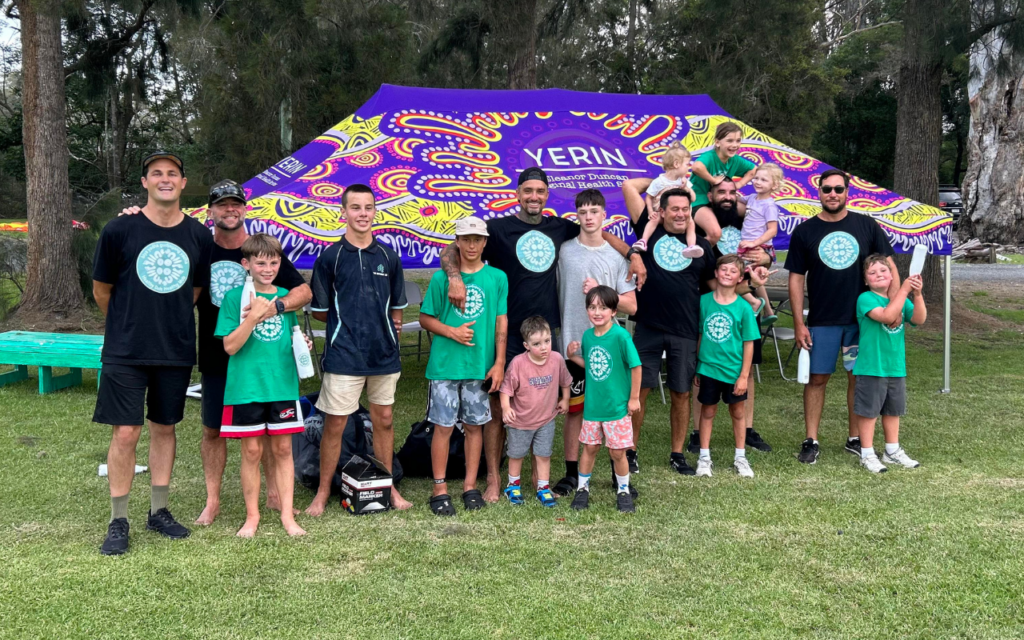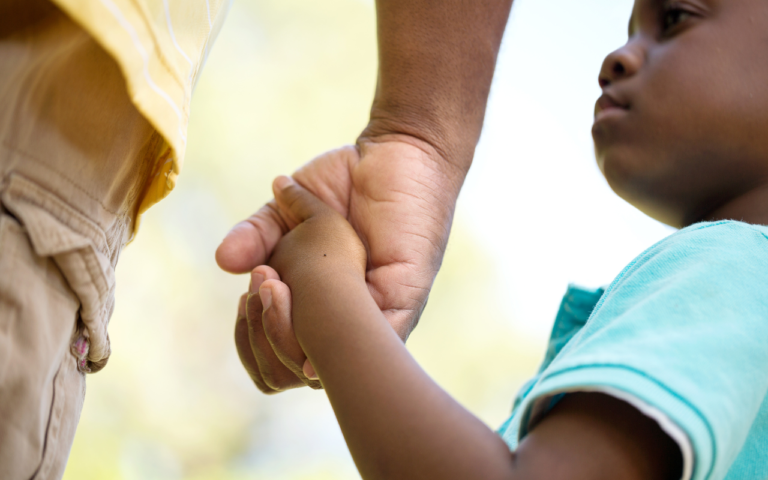New research has revealed that Aboriginal and Torres Strait Islander people are underrepresented in parenting program trials in Australia.
Reviews published in Australian Medical Journala trial of Australian parenting programs aimed at improving children's mental and physical health found that the specific needs of Aboriginal and Torres Strait Islander families were generally not taken into account.
This review examined 109 randomized controlled studies and found that only nine (8%) reported the participation of Aboriginal or Torres Strait Islander parents.
These studies also found that only 93 (0.6%) parent participants identified as Aboriginal and Torres Strait Islander.
The review's lead author, Jake MacDonald, is originally from Garabal and is a Cultural Capacity Partner at the University of Newcastle's Office of Indigenous Strategy and Leadership. This scope review is part of a larger paper by MacDonald. Biya yada gujagan yada (Healthy Dads Healthy Mob) – Focuses on Indigenous representation in parenting programs.
“We wanted to understand what data was out there,” McDonald said. “Was it safe for our mob? How can we adapt what works in non-Aboriginal communities in terms of health and make it work for local Aboriginal communities as well?”
“My family's traditional country is on the New South Wales/Queensland border near Emmaville. I live in Jun Country.”

Collecting culturally safe data for the well-being of Indigenous peoples
The review found that none of the 109 published studies cited lack of consultation with Indigenous peoples or low participation rates as study limitations.
Mr MacDonald said the review would specifically address issues surrounding colonization, the Stolen Generations and other government policies including forced separation from parents that continue to impact on the health and wellbeing of Aboriginal and Torres Strait Islander people. He said that it is enlightening when viewed in this context. family.
“There's a complete lack of perspective on what it means to be an Aboriginal parent,” Mr McDonald says.
“There is a complete misunderstanding, especially around Aboriginal men, of what it means to be an Aboriginal father and to raise children. It is helping to destroy their traditional roles.”
“There's a lot of research on parenting. But are Aboriginal people involved? Are they going to respond to needs and understand the unique position of Aboriginal families?”
“Of the 109 studies, only nine met the inclusion criteria of reporting the cultural background of the participants,” McDonald said.
“And of the 15,559 parent participants, only 93 identified as Aboriginal and Torres Strait Islander people,” he said.
The study concludes that research into Australian parent support programs ignores the unique needs of Aboriginal and Torres Strait Islander families and limits support options.
“Indigenous…parenting practices are not well understood or incorporated into policy and practice,” McDonald and his colleagues wrote.
Beyond data
Mr McDonald's team is already incorporating the findings into culturally appropriate programs for Aboriginal and Torres Strait Islander fathers and children in his region.
“We worked with local Aboriginal fathers in Darkinjung County to design a parenting program that responded to their needs,” Mr McDonald said.
“Professor Phil Morgan from Newcastle University has delivered 'Healthy Dads, Healthy Kids', which has had positive results for the wider community, but has never been adapted to Aboriginal fathers and their children. It was not done.”
He and his team then set out to create a program specifically for Aboriginal fathers and their children.
“So we had some yarn knitting sessions.” [with a Yerin men’s group] So we talked about what it means to be an Aboriginal father in Darkinjun Country. If we were to create a program for your child, what would you want? '' McDonald said.
This program was delivered in partnership with Yellin Eleanor Duncan Aboriginal Health Services.
“It's an eight-week course, where we have educational sessions and outdoor physical activity sessions, and at the end we feed together. And for our community, we all eat together and informally… Building relationships is important.”
full-fledged consulting
Mr Macdonald received his Cultural Governance from Newcastle University's Aboriginal and Torres Strait Islander Education and Research Board (BATSIER).
“A big part of my research is the importance of cultural governance structures,” he said.
“As an Aboriginal man, I need Aboriginal people to oversee the research I'm doing and make sure it's done in an authentic way.”
See results
“We've captured some quantitative measures. The findings are preliminary, but they look very promising,” McDonald said.
“But what was really valuable to me were the personal stories, the qualitative content where fathers were saying they had better relationships with their children.”
MacDonald said recently becoming a parent herself has made her job feel even more important.
“If we're going to seriously address some of these issues, we need to sit down with local communities and do it in a meaningful and inclusive way,” he said.
“We have to understand the generational impact of being kicked out of your country and having your children taken away. Otherwise we will talk about closing the gap without doing it.” It will continue.”
read scoping review inside Australian Medical Journal.
Subscribe for free Insight+ weekly newsletter here. It can be viewed by all readers, not just registered physicians.


